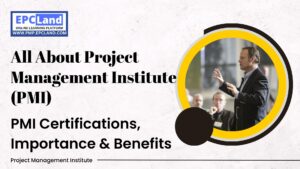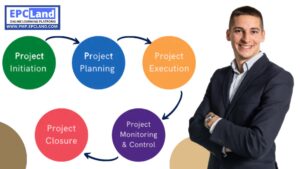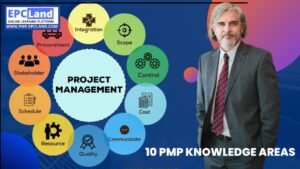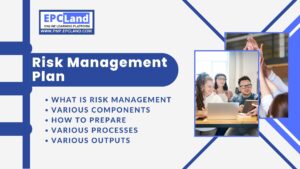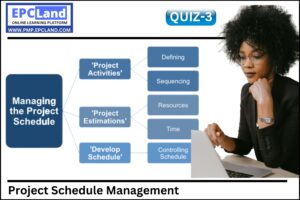What is Plan Schedule Management Process
The Plan Schedule Management process is a project management process that involves creating a schedule and a plan for how the project will be executed. The process includes identifying the project’s tasks, determining their dependencies, estimating the duration of each task, and developing a schedule that outlines when each task will be performed. It also includes creating a plan for managing the schedule, which includes identifying the resources needed to complete the project, determining how those resources will be acquired, and identifying any risks that could impact the schedule.
The output of this process is a project schedule and a schedule management plan that outlines how the schedule will be managed throughout the project. The schedule management plan should be integrated with other project management plans such as cost, quality, scope, resource and risk management. This process is critical for ensuring that the project is completed on time and within budget.
What is the importance of Plan Schedule Management process
The Plan Schedule Management process is important for a number of reasons:
- Time Management: The schedule is a critical tool for managing the project’s timeline and ensuring that the project is completed on time. By identifying the tasks that need to be completed, determining their dependencies, and estimating their duration, the project schedule provides a clear plan for how the project will be executed.
- Resource Management: The schedule management plan helps identify the resources needed to complete the project and determine how those resources will be acquired. This helps ensure that the project has the necessary resources to be completed on time and within budget.
- Risk Management: The schedule management plan also includes identifying any risks that could impact the schedule. This allows the project team to proactively plan for and mitigate potential schedule delays.
- Communication: A project schedule provides a clear and concise plan for the project, making it easy to communicate the project’s progress and any potential issues to stakeholders.
- Cost Management: A well-managed schedule can help keep costs in check by avoiding delays and ensuring that resources are used efficiently.
- Quality Management: A schedule management plan helps ensure that tasks are completed on time and within budget, which helps maintain quality standards.
- Integration: The schedule management plan is integrated with other project management plans such as cost, quality, scope, resource and risk management.
- Baseline: A project schedule is also used as a baseline for measuring project performance and progress.
Overall, the Plan Schedule Management process plays a key role in ensuring that the project is completed on time, within budget, and to the satisfaction of the customer or sponsor.
Attempt Quiz-1 on Plan Schedule Management Process
How to prepare Plan Schedule Management process
To prepare the Plan Schedule Management process, the following steps can be taken:
- Define project objectives and scope: Clearly define the project’s goals and objectives and create a detailed project scope statement.
- Identify project tasks: Break the project down into smaller, manageable tasks and identify the activities that need to be completed to achieve the project objectives.
- Determine task dependencies: Identify which tasks are dependent on the completion of other tasks and establish a logical order in which the tasks will be completed.
- Estimate task duration: Estimate the amount of time it will take to complete each task, taking into account any risks or uncertainties that may impact the schedule.
- Create a project schedule: Use the information gathered in the previous steps to create a detailed project schedule that includes the start and end dates for each task, and the resources needed to complete them.
- Develop a schedule management plan: Create a plan for managing the schedule that includes identifying the resources needed to complete the project, determining how those resources will be acquired, and identifying any risks that could impact the schedule.
- Identify critical path: Determine the critical path of the project, which is the sequence of tasks that must be completed on time in order for the project to be completed on schedule.
- Identify milestones: Identify key milestones in the project schedule that will help measure progress and ensure that the project is on track.
- Communicate the schedule: Communicate the project schedule to all stakeholders and ensure that they understand their roles and responsibilities in relation to the schedule.
- Review and update the schedule: Regularly review and update the schedule as needed, taking into account any changes in the project scope, resources, or risks.
- Obtain approvals: Obtain approvals from stakeholders, sponsors and other key people for the schedule and schedule management plan.
By following these steps, you can prepare a comprehensive and realistic Plan Schedule Management process that will help ensure that the project is completed on time, within budget, and to the satisfaction of the customer or sponsor.
Tools & Techniques for Plan Schedule Management process
There are several tools and techniques that can be used to support the Plan Schedule Management process, including:
- Gantt Charts: Gantt charts are a visual representation of the project schedule that show the start and end dates for each task, as well as their dependencies. They are a useful tool for identifying the critical path and for communicating the schedule to stakeholders.
- Network diagrams: Network diagrams, also called PERT (Program Evaluation and Review Technique) or CPM (Critical Path Method) diagrams, are a graphical representation of the project schedule that show the dependencies between tasks. They are useful for identifying the critical path and for understanding the impact of schedule changes on the project.
- Critical Path Method (CPM): The Critical Path Method is a mathematical algorithm for scheduling a set of project activities. It is used to determine the critical path of a project and to identify the minimum project duration.
- Resource histograms: Resource histograms are a visual representation of the resources needed for a project and when they will be needed. They are useful for identifying resource conflicts and for developing a resource plan.
- Earned Value Management (EVM): Earned Value Management is a method for measuring project performance that combines measures of scope, schedule, and cost. It is useful for tracking progress and for identifying potential schedule or cost overruns.
- Schedule simulation: Schedule simulation is a technique that uses computer software to simulate the project schedule and to analyze the impact of different schedule scenarios. It is useful for evaluating schedule alternatives and for identifying potential schedule risks.
- Schedule compression techniques: Schedule compression techniques such as crashing and fast tracking are used to shorten the project schedule when it becomes clear that the original schedule is unrealistic.
- Project management software: Project management software such as Microsoft Project, Primavera, or Asana can be used to create, manage, and communicate the project schedule, as well as to track progress and manage resources.
By using these tools and techniques, project managers can develop a comprehensive and realistic project schedule, manage the schedule effectively, and make data-driven decisions to keep the project on track.
Role of Project Manager in Plan Schedule Management process
The role of the project manager in the Plan Schedule Management process is to lead and oversee the process of creating, managing and communicating the project schedule. The main responsibilities of the project manager in this process include:
- Developing the project schedule: The project manager is responsible for developing a comprehensive and realistic project schedule that takes into account the project objectives, scope, and constraints.
- Managing the schedule: The project manager is responsible for managing the project schedule and ensuring that the project is completed on time and within budget. This includes monitoring progress, identifying and mitigating schedule risks, and making adjustments as needed to keep the project on track.
- Communicating the schedule: The project manager is responsible for communicating the project schedule to all stakeholders and ensuring that they understand their roles and responsibilities in relation to the schedule.
- Managing resources: The project manager is responsible for managing the resources needed to complete the project, including identifying the resources needed, determining how they will be acquired, and ensuring that they are used efficiently and effectively.
- Managing changes: The project manager is responsible for managing changes to the project schedule, including assessing the impact of changes on the project schedule, securing approvals, and communicating changes to stakeholders.
- Identifying and resolving schedule issues: The project manager is responsible for identifying and resolving issues that may arise with the project schedule, including identifying potential schedule risks and developing plans to mitigate them.
- Obtaining approvals: The project manager is responsible for obtaining approvals from stakeholders, sponsors and other key people for the schedule and schedule management plan.
- Review and update the schedule: The project manager is responsible for reviewing and updating the schedule as needed, taking into account any changes in the project scope, resources, or risks.
Overall, the project manager plays a crucial role in the Plan Schedule Management process, as they are responsible for leading the process and making decisions that will ensure the project is completed on time and within budget, and to the satisfaction of the customer or sponsor.
What are the various inputs & outputs for Plan Schedule Management process
The Plan Schedule Management process has several inputs and outputs. These include:
Inputs for Plan Schedule Management process
- Project charter: The project charter provides the project manager with the project objectives, scope, and constraints that will be used to develop the project schedule.
- Project scope statement: The project scope statement provides the project manager with a detailed description of the project deliverables and their requirements.
- Resource availability: The project manager needs to know what resources are available to complete the project, including the availability of personnel, equipment, and materials.
- Project management plan: The project management plan provides the project manager with the overall plan for managing the project, including the schedule management plan, which provides guidance on how the schedule will be managed.
- Risk management plan: The risk management plan provides the project manager with information about potential schedule risks and strategies for mitigating them.
- Project schedule network diagrams: The project schedule network diagrams are used to identify the critical path, dependencies and project duration.
Outputs Plan Schedule Management process
- Project schedule: The project schedule is the main output of the Plan Schedule Management process. It is a detailed plan that shows the start and end dates for each project task, as well as the dependencies between tasks.
- Schedule management plan: The schedule management plan is an output of the Plan Schedule Management process that describes how the schedule will be managed throughout the project.
- Resource plan: The resource plan is an output of the Plan Schedule Management process that describes the resources that will be needed to complete the project and when they will be needed.
- Project schedule network diagrams: The project schedule network diagrams are also an output of this process, which can be used to manage the project progress.
- Project calendar: A project calendar is an output of this process, which details the specific dates when project-related activities will occur.
- Approval of schedule and schedule management plan: Approval of the schedule and schedule management plan by stakeholders and sponsors is also an output of this process.
Attempt Quiz-2 on Plan Schedule Management Process
These outputs are important for project managers, sponsors and stakeholders to understand the project schedule, the resources needed, and the potential schedule risks, and to make decisions accordingly. They provide a foundation for the project execution and monitoring and controlling the project schedule.










